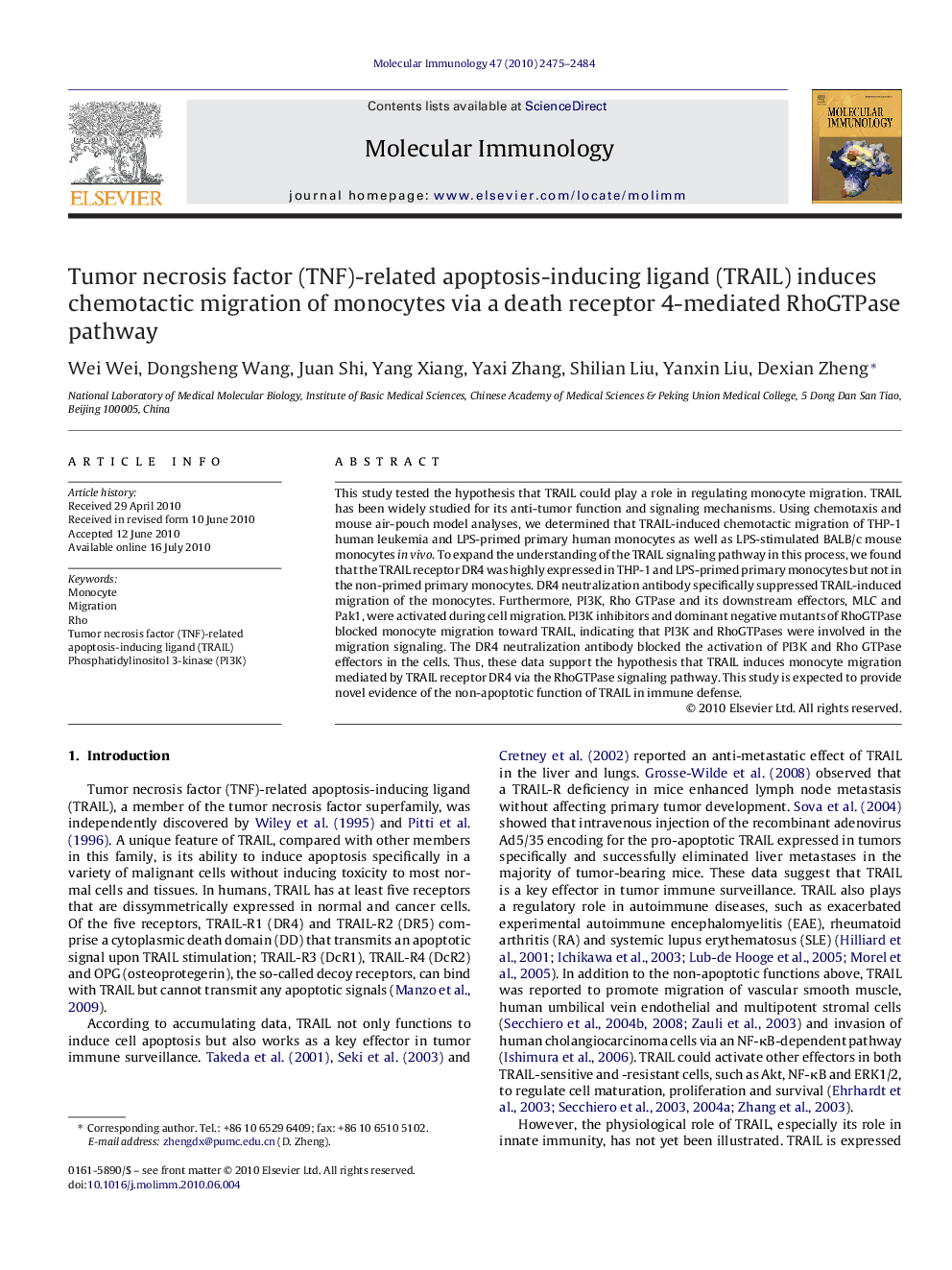| Article ID | Journal | Published Year | Pages | File Type |
|---|---|---|---|---|
| 2831425 | Molecular Immunology | 2010 | 10 Pages |
This study tested the hypothesis that TRAIL could play a role in regulating monocyte migration. TRAIL has been widely studied for its anti-tumor function and signaling mechanisms. Using chemotaxis and mouse air-pouch model analyses, we determined that TRAIL-induced chemotactic migration of THP-1 human leukemia and LPS-primed primary human monocytes as well as LPS-stimulated BALB/c mouse monocytes in vivo. To expand the understanding of the TRAIL signaling pathway in this process, we found that the TRAIL receptor DR4 was highly expressed in THP-1 and LPS-primed primary monocytes but not in the non-primed primary monocytes. DR4 neutralization antibody specifically suppressed TRAIL-induced migration of the monocytes. Furthermore, PI3K, Rho GTPase and its downstream effectors, MLC and Pak1, were activated during cell migration. PI3K inhibitors and dominant negative mutants of RhoGTPase blocked monocyte migration toward TRAIL, indicating that PI3K and RhoGTPases were involved in the migration signaling. The DR4 neutralization antibody blocked the activation of PI3K and Rho GTPase effectors in the cells. Thus, these data support the hypothesis that TRAIL induces monocyte migration mediated by TRAIL receptor DR4 via the RhoGTPase signaling pathway. This study is expected to provide novel evidence of the non-apoptotic function of TRAIL in immune defense.
